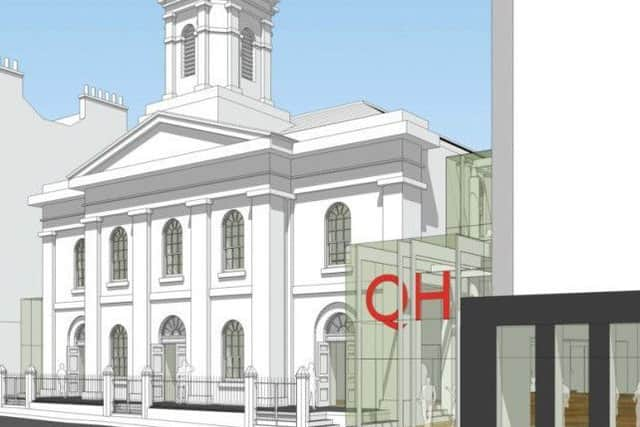Kevin Buckle: We must take a cold, hard look at decline


However as with most things one single issue is rarely the sole cause. While noise is a factor that only affects venues the other factors involved are also the reason behind the closure of many record stores and other arts-based shops. When I was asked a decade ago when I thought the last independent record shop would close my answer was not a date it was “whenever the last owner retires”.
Several shops in the States have closed recently where the owner has been at pains to point out that business was still sustainable but it was time to retire and who would begrudge people who often have put 40-plus years into a shop enjoying their retirement.
Advertisement
Hide AdAdvertisement
Hide AdThere is of course a huge difference between a business that can make enough money to survive given an owner’s expertise and a business that can be sold on, which is why these places close on retirement.


The same applies to venues and while often unlike shops the owners may not be dealing with things on a daily basis they are still paying the bills and that leads us to the biggest issue of all that so often is the elephant in the room. A downward spiral of customers.
Nobody wants to close blaming a lack of customers – far better to thank all the customers of times gone by and those loyal customers that are left. For a venue nobody wants to blame the customers they do get for spending so long on their phones they barely drink anything. Understandably these reasons are glossed over despite often being at the core of the closure.
When a big US record shop closes and namechecks all those huge bands that played their first gigs in the shop what they don’t then go on to mention is that it is those very bands who are now selling their new album as a box set that the shop can’t get or at best will get an inferior version of that are part of the reason they are closing.
Advertisement
Hide AdAdvertisement
Hide AdWhen customers rave about the fantastic customer service and all the bands they have discovered because of the shop they conveniently forget to say that they now buy directly from those bands to get those signed prints and bonus material they can’t get from the shop.


Far better for the shop to blame those pesky landlords and their high rents and all that gentrification than mention the part customers, bands and their labels play.
Back in the UK even for venues there is a problem getting the bigger bands that would attract the customers to play live when now they have other streams of income. I know many venues and promoters amazed at the unwillingness of artists to play live these days.
I recently met up with Murray Seaton whose drum shop in Edinburgh was so well known but what I learned more about was his father Pete Seaton’s musical instrument shop that served the many Edinburgh bands so well throughout the sixties and seventies. In one sentence Murray, who played in several bands, summed up just how things have changed: “In one week we could play nine gigs in Edinburgh – every day and two on Fridays and Saturdays. We could do that for several weeks and never play the same venue twice!”
Advertisement
Hide AdAdvertisement
Hide AdThey were different times for sure but have things really changed so much that the current position with venues should be accepted as inevitable? Again for shops if the situation they find themselves in is just silently accepted then their position will become untenable.
False positivity as we get with the vinyl revival and small hipster enclaves only delay the inevitable decline and fall. Constructive negativity may not give the right headlines but is the only way the current situation will be reversed.
Queen’s Hall refurb strikes the right note
Great news that the Queen’s Hall has even bigger plans after its refurbishment to open the whole place up and look so much more inviting from the outside.
There are of course plans for a brand new concert hall to be built in the gap site behind the RBS head office just off St Andrew Square that will home the Scottish Chamber Orchestra, currently resident in the Queen’s Hall, and that should leave it free to look to new exciting opportunities spearheaded by its soon to be announced chief executive.
Advertisement
Hide AdAdvertisement
Hide AdA major redevelopment of the Ross Bandstand will add another venue to Edinburgh though if the publicity is to be believed it will be used sparingly given its location.
Finally whatever the outcome for the old Royal High there will be at least one new venue there. Grandiose plans for the proposed music school will certainly provide a spectacular concert hall if the safety concerns are unfounded and while they may be optimistic with how often it will be used it has a solid base in use from the music school.
The luxury hotel currently in pole position may provide as many as three venues of varying sizes and while the proposed hotel operator Rosewood has a great reputation in New York that offering would need to be adjusted considerably for Edinburgh. Either proposal has to be better than leaving the site in its current state.
While this all sounds fairly promising it doesn’t address the assertion that Edinburgh needs its own Hydro or the ongoing problem of smaller venues closing. There are of course other venues as well such as the Usher Hall and it is clear that even in the future under the current plans there will be an imbalance in venues both in size and purpose. This is clearly something that needs to be addressed sooner rather than later if a better balance of venues is to be achieved.
Where are all the local people?
Advertisement
Hide AdAdvertisement
Hide AdI was in Glasgow late morning and early afternoon on Monday collecting some items for the Fruitmarket Gallery music exhibition in June and the place was buzzing with people in bars and cafes and to a lesser extent shopping. The following day I was in Edinburgh at the same time and again it was looking busy but everywhere I looked it was tourists.
It is an obvious thing to say but the feel of the cities was very different and it did leave me wondering where all the locals in Edinburgh go to at lunchtime.
Is it that they now just sit in their workplaces surfing online or is the thought of fighting their way through so many tourists simply standing in the middle of the pavement a factor?